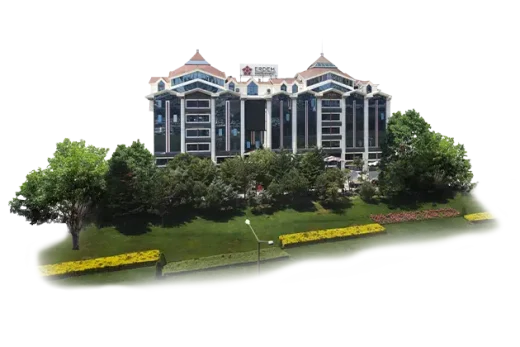You’ve just returned from a blissful summer holiday sun-soaked mornings, quiet afternoons, and zero stress. But now, the alarm rings early, emails pile up, and your mood takes a sudden dip. If this sounds familiar, you’re not alone. Many people experience what’s known as post-vacation depression, a form of emotional and physical slump that strikes after time away.
While it’s common to feel nostalgic after a good break, persistent fatigue, irritability, or lack of motivation could indicate that you’re struggling to adapt. This article explores the symptoms of post-holiday blues, how to rebuild motivation, and most importantly, how to protect your mental health as you transition back into daily life.

What Is Post-Vacation Depression?
Post-vacation depression (PVD) isn’t a clinical diagnosis, but it’s a very real emotional state. It occurs when the contrast between holiday freedom and work responsibilities becomes overwhelming, leading to low mood, mental fatigue, and a lack of enthusiasm.
Common Symptoms of Post-Vacation Blues
If your return feels heavier than expected, here are signs to watch out for:
- Persistent sadness or emptiness
- Fatigue despite adequate sleep
- Difficulty focusing or completing tasks
- Irritability or mood swings
- Social withdrawal
- Lack of motivation or interest in work
- Anxiety about routines or deadlines
While these symptoms often fade within a few days, they can linger for weeks if not addressed.
Why Does It Happen After Summer Break?
The body and mind experience a shift during vacation:
- Cortisol levels drop
- Dopamine levels rise due to relaxation, sunlight, and novelty
- Sleep patterns stabilize without alarms and screens
- Physical movement and fresh air improve circulation and mood
Returning to a fast-paced lifestyle too suddenly disrupts this balance, often causing emotional withdrawal and stress responses.
How to Prevent or Minimize Post-Vacation Depression
You don’t have to dread the end of a holiday. Here are effective strategies to ease the transition:
✅ 1. Ease Back Gradually
Don’t return to work the day after your flight. Give yourself a buffer day to:
- Unpack slowly
- Grocery shop or prep light meals
- Reorganize your space
- Reflect or journal about your trip
This soft landing helps your nervous system adjust at a human pace.
✅ 2. Plan Something to Look Forward To
Your brain craves reward cycles. One reason vacation feels amazing is that you’re always anticipating the next joy (beach, meal, sunset).
After returning, plan:
- A weekend coffee date
- A short local hike
- A creative workshop
- A massage or spa appointment
It’s not about luxury, it’s about maintaining micro-pleasures.
✅ 3. Use Photos to Anchor Gratitude, Not Longing
While it’s easy to scroll your vacation gallery and wish you were still there, use those images to fuel gratitude.
- Print a few favorites and place them near your workspace.
- Write one sentence under each: “This moment helped me breathe again.”
- Shift the mindset from “It’s over” to “It’s part of me now.”
✅ 4. Reintegrate Holiday Habits Into Daily Life
Ask yourself: What did I love most during vacation? Was it daily walks? Fresh fruit? Reading before bed?
Bring pieces of that rhythm back:
- Morning stretches on the balcony
- Listening to ocean sounds before sleep
- Swapping screen time for books
- Eating lighter, fresher meals
Sustainable wellness is built on small, consistent rituals.
✅ 5. Organize Your Week With Flexibility
Instead of diving into chaos, structure your first workweek mindfully:
- Prioritize only 3 tasks per day
- Block time for short breaks
- Take lunch outdoors if possible
- Delay non-urgent meetings
This allows your body to recalibrate and your mind to re-engage without feeling flooded.
✅ 6. Stay Physically Active
Movement is one of the best defenses against mental fatigue. Aim for:
- A brisk 20-minute morning walk
- Light stretching or yoga in the evening
- Outdoor movement to maintain your vacation mood
Exercise supports serotonin release, enhances energy, and improves sleep all essential to post-holiday recovery.
✅ 7. Practice Emotional Check-Ins
Sometimes what feels like “laziness” or “lack of motivation” is actually emotional processing.
Each evening, ask:
- What did I miss about vacation today?
- What small joy did I experience at home or work?
- How am I feeling about this transition?
Self-awareness helps you meet your emotions with curiosity instead of judgment.
✅ 8. Seek Support if Needed
If low mood, anxiety, or mental fog persist for more than two weeks and interfere with daily functioning, don’t hesitate to speak to a professional. Post-vacation depression can unearth deeper stress or dissatisfaction that deserves attention.
Therapy, wellness coaching, or even short-term mental health programs can reignite purpose and restore balance.
Rebuilding Energy and Motivation
Absolutely. Motivation is not a switch, it’s a state of readiness fueled by rest, clarity, and meaningful goals. As you transition from holiday mode:
- Reassess what energizes you.
- Set realistic, short-term goals.
- Celebrate small wins.
- Build a morning routine that feels more like a sunrise than a stampede.
Remember: You don’t need to feel 100% energized immediately. Consistency beats intensity.
Supporting You Beyond the Holiday Glow

At Erdem Hospital, we understand that health is not just about the physical body, it’s about mental clarity, emotional strength, and sustainable energy.
If you’re experiencing persistent post-vacation burnout, fatigue, or emotional imbalance, our expert team can help you:
- Understand the psychological roots of stress
- Receive personalized support through mental health consultations
- Rebuild vitality through nutrition and hormone analysis
- Address physical symptoms of burnout like insomnia, migraines, or digestive issues
- Reignite focus with wellness programs tailored to modern professionals
With over 37 years of medical excellence, Erdem Hospital supports your full-spectrum recovery not just from illness, but from life’s overwhelming pace. Because true health begins when your mind and body are finally on the same page.